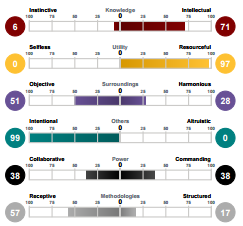For a few years now I’ve been reading about the challenges of managing Millennials. Since Thanksgiving, I’ve been hearing it directly from clients and I’ve been involved in resolving the issues that arise between managers and their Millennial employees. Specifically, I’ve helped 3 managers who can be classified as “Generation X” (year of birth roughly from early 1960s to late 1970s) connect with their “Millennial” (year of birth roughly from early 1980s to mid-1990s/early 2000s) employees who are direct reports. It may not sound like a big generation gap on paper, but it presents itself as bigger than I expected.
In all three cases, my client has been a first level manager who highly respects the skills of the Millennial worker. The gap between the two is with respect to work values. One common disconnect is in compensation and another is commitment to timely results.
Baby Boomers and the previous generations believed that one was fortunate to get a good paying job, and they worked hard to keep it or grow in it. GenXers are labeled as a little less driven than those who came before them, but more work focused than Millennials. Millennials believe that while their primary focus is not money, a well-paying job is expected so that they do not struggle financially – as they perceive their parents’ situation at the same age. This is noticeable through the desire for promotions and pay raises that their managers may not feel they have earned. Much of their financial angst is likely caused by large student debt and the high cost of living (for example, home ownership is out of reach for many).
The other disconnect I alluded to above is work ethic. Other generations have the perception that Millennials are not willing to sacrifice or pay their dues as workers have in the past. Millennials are more aware of work/life balance than any previous generation. They have seen their parents work hard only to lose their jobs because companies are more focused on profit than concern for their workers. Many have also had a more comfortable childhood than previous generations, so the “fire in the belly” to improve their stage in life is less evident since a good life is expected. Yet, it has been said that the Millennial generation may be the first that isn’t better off financially than their parents.
To summarize the above, the perception is that Millennials want to be paid well before proving their value.
The way I resolve these issues is to take an objective approach. Those involved already have their biases that shape their feelings and actions. I find that stripping away the generalizations and emotionally charged words helps the parties see each other more clearly.
Unbiased, multi-measure assessments are the objective way to cut through the misalignment between manger and employee. It is not based on feelings; it is the scientific, research-based assessment that identifies the gap between two people. The example below shows in yellow that the manger is Resourceful (driven by practical results, maximizing both efficiency and ROI of time, talent, energy and resources), while the employee is Selfless (driven by completing tasks for the greater good, with little expectation of personal return). This is a huge disconnect in work values. While this is best discovered before one is hired, many times this can be resolved by understanding and respective what drives one another. The same comparison can be done with natural behaviors and skills, so that expectations can be reset.
Manager Employee


Manager/employee gap between what drives them.
Not all Millennials are alike, just as not all people in any named group are alike. Disconnects have always been in place. For instance, I once had to facilitate a similar intervention between two valued coworkers: a Chinese American and a native Texan. Their values were vastly different, yet after some effort, a healthy working relationship was developed.
Not all relationships can be salvaged, but understanding what it is like to “walk a mile in someone’s shoes” through the use of an assessment will give the parties the empathy needed attempt to bridge the gap.
If you are having a communication issue with someone of another generation, contact us and we’ll help you resolve whether the relationship can be reconciled.
